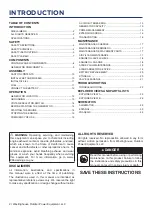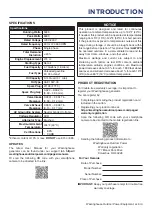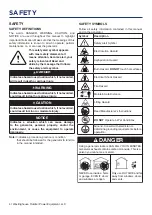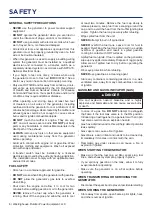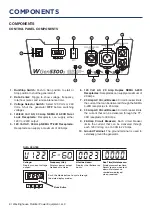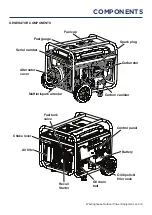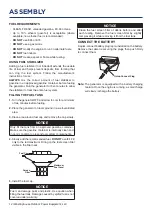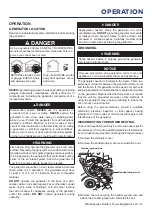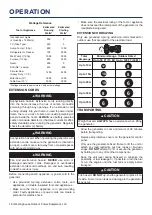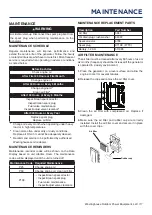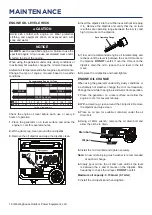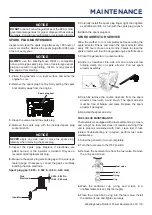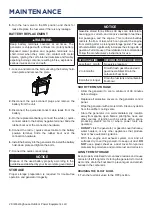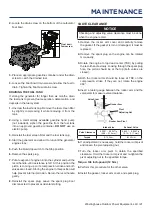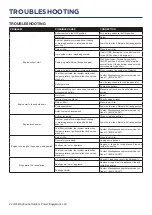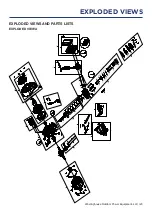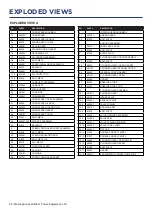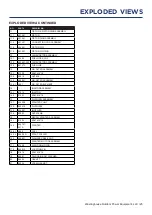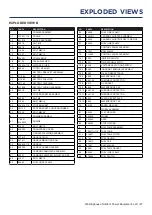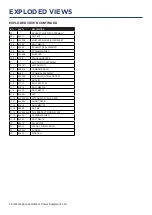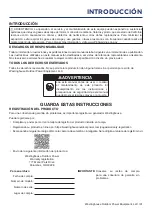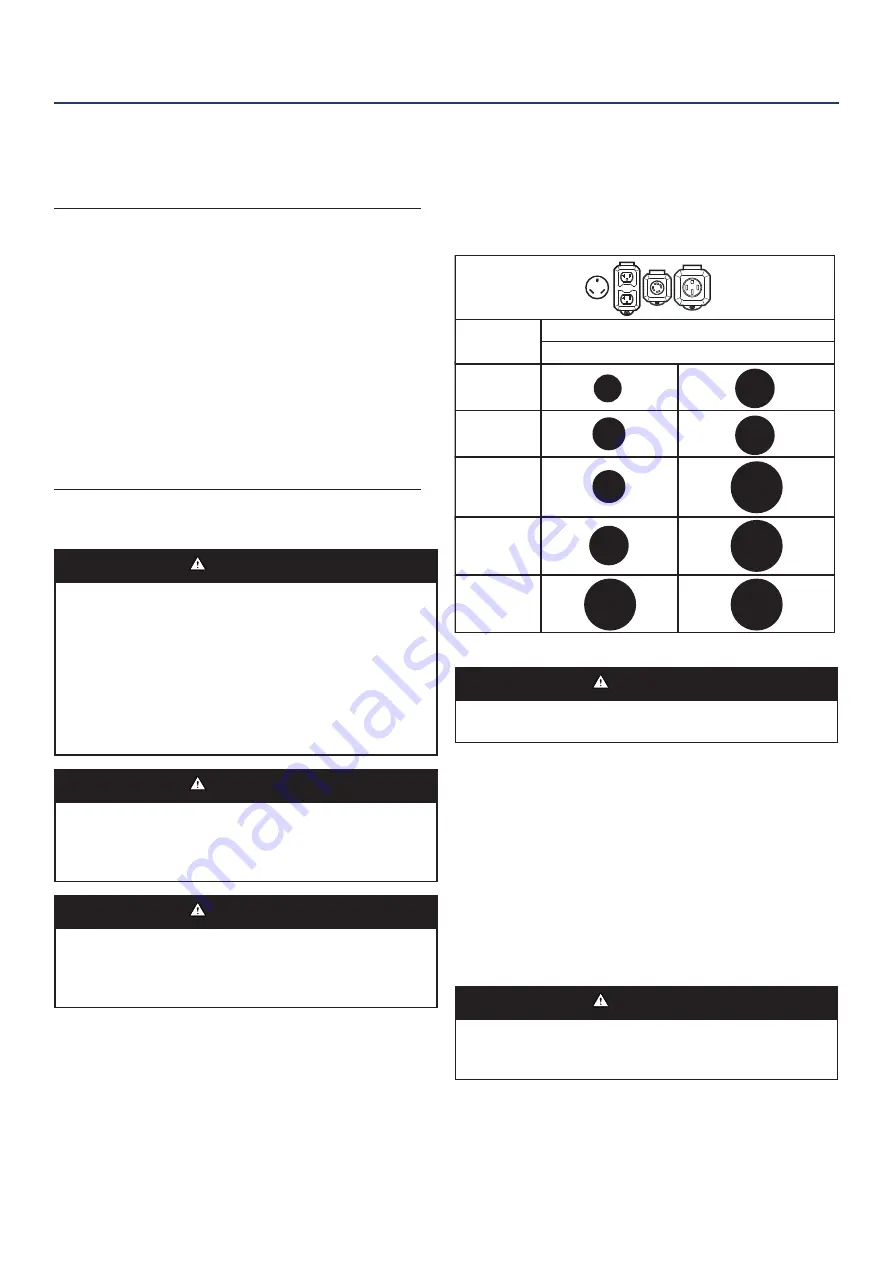
16 | Westinghouse Outdoor Power Equipment, LLC
Wattage Reference
Tool or Appliance
Estimated
Running
Watts*
Estimated
Starting
Watts*
Incandescent Lights
(4 Quantity x 75 Watts)
300
0
TV (Tube Type)
300
0
Sump Pump (1/3 hp)
800
1300
Refrigerator or Freezer
700
2200
Well Pump (1/3 hp)
1000
2000
Furnace (1/2 hp)
800
2350
Radio
200
0
Drill (3/8”, 4 amps)
440
600
Circular Saw
(Heavy Duty, 7-1/4”)
1400
2300
Miter Saw (10”)
1800
1800
Table Saw (10”)
2000
2000
*Wattages listed are approximate. Verify actual wattage.
EXTENSION CORDS
WARNING
Asphyxiation hazard. Extension cords running directly
into the home increase the risk of carbon monoxide
poisoning through any openings. If an extension cord
running directly into your home is used to power indoor
items, there is a risk of carbon monoxide poisoning to
people inside the home.
ALWAYS
use battery-powered
carbon monoxide detector (s) that meet current UL 2034
safety standards when running the generator. Regularly
check the detector (s) battery.
WARNING
Asphyxiation hazard. When operating the generator with
extension cords, make sure the generator is located in
an open, outdoor area, far away from occupied spaces
with exhaust pointed away.
WARNING
Fire and electrocution hazard.
NEVER
use worn or
damaged extension cords. Damaged or overloaded
extension cords could overheat, arc, and burn resulting
in death or serious injury.
Before connecting an AC appliance or power cord to the
generator:
• Use grounded 3-prong extension cords, tools, and
appliances, or double-insulated tools and appliances.
• Make sure the tool or appliance is in good working
order. Faulty appliances or power cords can create a
potential for electric shock.
• Make sure the electrical rating of the tool or appliance
does not exceed the rated power of the generator or the
receptacle being used.
EXTENSION CORD SIZING
Only use grounded 3-prong extension cords marked for
outdoor use that are rated for the electrical load.
1
1
6
Total
Amperage
Up to 10A
Up to 15A
Up to 20A
Up to 50 FT (15 M)
6
Minimum Gauge, Outdoor Rated
Up to 100 FT (30 M)
Up to 30A
Up to 35A
8
10
10
12
8
8
6
6
TRANSPORTING
CAUTION
Weight hazard.
ALWAYS
have assistance when lifting
the generator.
• Allow the generator to cool a minimum of 30 minutes
before transporting.
• Replace all protective covers on the generator control
panel.
•
Only use the generator’s fixed frame to lift the unit or
attach any load restraints such as ropes or tie-down
straps.
DO NOT
attempt to lift or secure the generator
by holding onto any of its other components.
• Keep the unit level during transport to minimize the
possibility of fuel leakage or, if possible, drain the fuel
or run the engine until the fuel tank is empty before
transport.
CAUTION
Fire hazard.
DO NOT
up-end the generator or place it on
its side. Fuel or oil can leak and damage to the generator
may occur.
OPERATION

